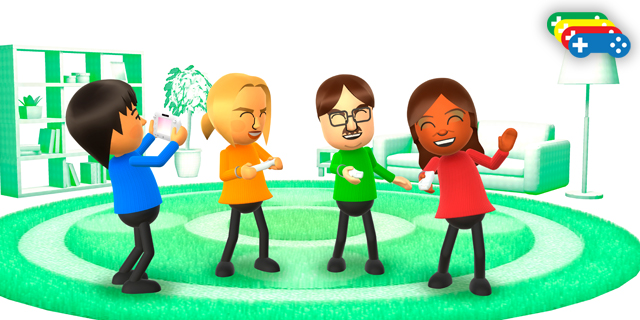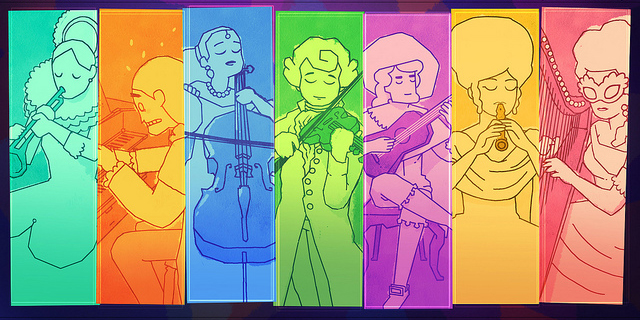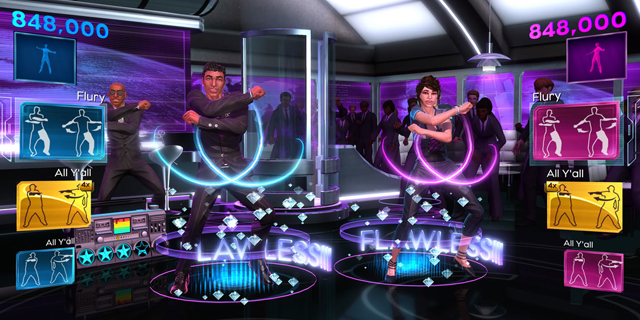
I’ve been playing the just-released Wii Party U this week. It’s home to some objectively-atrocious game design at times, and it features arguably the most obnoxious character in the history of games. Still, Wii Party U can be very fun, when it knows to be a party game first and foremost.
“But Graham,” you say, “isn’t it always a party game?” Not exactly. Those who play unplugged titles know what I’m talking about: sure, most board and card games are played at parties, but that doesn’t make them party games. That distinction is reserved for titles whose primary appeal comes from the players themselves, not relying on the internal mechanics to provide much strategy or challenge. Think Cranium, or Identik, or Dixit, or Shadow Hunters.
Video games also have this category. I’m not talking about Mario Party, either; it’s silly fun, but it uses “party” as a code for “you don’t have to pay much attention.” (Wii Party U still does some of this, too.) Recent electronic party games include Johann Sebastian Joust, You Don’t Know Jack, Mixed Messages and Spin the Bottle: Bumpie’s Party. A good rule of thumb: ask yourself how much fun the game would be if played online with random people. If your answer is “not much at all,” that’s a party game.

Wii Party U dips into this territory in its House Party modes. Name That Face gives the GamePad player a prompt to make a face about, and the others guess which of four prompts it was. Sketchy Situation lets everyone draw a phrase, but one person’s phrase was different, and you have to guess which. Do U Know Mii? assesses how well you know others’ personalities by predicting where they’d place themselves on various scales. Button Smashers is like finger-based Twister, and Dance With Mii has you moving around in circles.
Playing a party game feels different from playing other games, and requires a different mood. Playing requires a certain social engagement, an openness to interaction and a willingness to share ideas and opinions. None of that is needed for your typical Smash Bros. match. Most of the time, people probably don’t have that kind of energy.
It also tends to require a tolerance for less-than-sound mechanics. It goes past mere luck; party games are designed to allow any winner regardless of skill, at least occasionally. Often, those who really want to win games will find party games frustrating. That’s passed on to the rest of the group, too! Nothing makes things more miserable than the one guy who starts to exploit mechanics or answer in a dishonest way to win.

There have been attempts to fix this problem, meshing the party feel with more traditional elements. WarioWare: Smooth Moves had normal gameplay, but its appeal lies in watching others do silly things in front of a group. The same could be said for Dance Central, with motion-based mechanics but mechanics nonetheless. And what about Rock Band? It’s just a normal rhythm game, until you add the performance aspects of a real singer.
Putting together these two aspects seems to be a recipe for success, mitigating the issues of both genres. The points are real and acceptable, but the appeal is still social. Making sure to game the overdrive multiplier for maximum points in Rock Band doesn’t make a group performance of Bohemian Rhapsody any less fun. Trying to succeed at Smooth Moves minigames makes the experience even more earnest. Still, this doesn’t work for every formula.
If you don’t normally play games like these, maybe give one a shot? They’re the sort of fun that can really shake up the monotony of your average game night, and even make your normal games feel more fresh and interesting when you return to them.



















